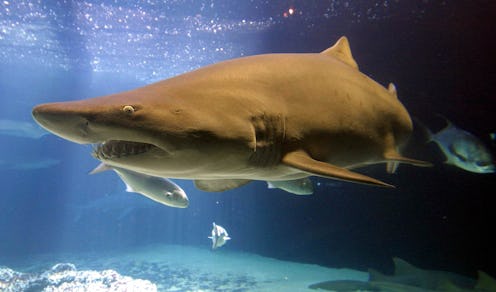News
China Just Took This Off Their Menu
Pangolin are off the menu, thanks to China's new policy that will jail people caught eating rare wild animals. The policy is a new interpretation of criminal law from the Standing Committee of the National People's Congress, and those who don't abide by the law could be jailed for a decade or more, according to Reuters. The new interpretation will also make it illegal to knowingly purchase any wild animals killed by illegal hunting.
China currently lists 420 species as rare or endangered, including the Giant Panda, golden monkeys, and Asian black bears, and are threatened by hunting, illegal trade, and the destruction of natural environments. China is home to 6,500, or about one-tenth of the world's total vertebrate species.
The pangolin, an animal resembling a scale-covered anteater, is the most frequently seized mammal in Asia's illegal wildlife trade. As a staple of traditional Chinese medicine, demand has only increased with the country's wealth, and its numbers are suffering. A dish called pangolin fetus soup is (unfoundedly) thought to increase a man's virility.
Because the animal is increasingly rare, the pangolin has become an expensive commodity, which further entices crime rings to smuggle it. A kilogram of pangolin would once fetch 80 yuan, or $10, but now will sell for 1,200 yuan, or $175 on the black market.
As China becomes wealthier, eating endangered animals has been viewed as a status symbol among officials and the elite. In fact, banquets and other special occasions often serve shark fin soup or giant Chinese salamander as symbols of respect for the guest of honor.
"Eating rare wild animals is not only bad social conduct but also a main reason why illegal hunting has not been stopped despite repeated crackdowns," said Lang Sheng, deputy head of parliament's Legislative Affairs Commission, according to the official Xinhua news agency. "In fact, buyers are a major motivator of large-scale illegal hunting."
This is not the first step China has taken to shed its image as a hub for illegal wildlife trade and to discourage the practice. In January, forestry and customs officials oversaw the crushing of a pile of ivory weighing over six tons, which was also broadcast live by state broadcaster CCTV.
Wildlife crime, including poaching, illegal harvesting, and other cross-border trading is the fourth-largest illegal activity in the world, after drug trafficking, counterfeiting, and human trafficking, according to the environmental watchdog International Union for Conservation of Nature (IUCN). At a conference on the subject on April 10, 2014 in Brussels, Luc Bas, the Director of the IUCN's EU Representative Office, spoke of the widespread effects of trafficking:
Wildlife crime puts entire ecosystems at risk, and international intelligence, policy, and enforcement efforts have to be urgently strengthened, in particular to address the role of international crime in driving illegal activities.
